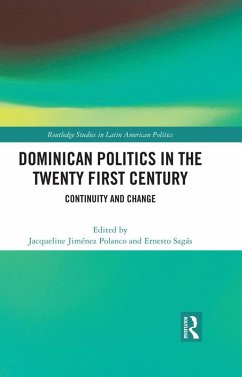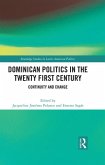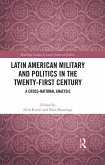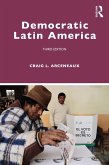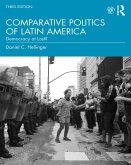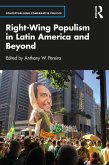Across eight chapters, a collection of subject experts argue that the Dominican case offers valuable lessons to understand that even though traditional political parties are endangered throughout the region, they are not going anywhere. The book analyzes topics including electoral politics, the quality of Dominican democracy, political parties, corruption, relations with Haiti and the United States, migration, the Dominican diaspora, gender and politics, social movements, and civil participation and citizenship, to reveal how the Dominican case proves that traditional political parties can adapt in order to survive, turning themselves into major sources of patronage, appealing to personalistic politics, and tinkering with the constitution in order to stay relevant.
Dominican Politics in the Twenty First Century will be a vital resource for understanding contemporary Dominican politics. It will appeal to political scientists, Latin Americanists, and students of democracy, comparative politics, and electoral politics in general.
Dieser Download kann aus rechtlichen Gründen nur mit Rechnungsadresse in A, B, BG, CY, CZ, D, DK, EW, E, FIN, F, GR, HR, H, IRL, I, LT, L, LR, M, NL, PL, P, R, S, SLO, SK ausgeliefert werden.
Manuel Alcántara, Professor of Political Science, Universidad de Salamanca, Spain
"Informed by sound research and careful analysis, this edited volume introduces readers to a wealth of knowledge in a skillfully stitched-together sequential and well-articulated narrative that discusses political life in a growing democratic Dominican society during the last half century. In six chapters, the authors examine actors, actions, and ideological beliefs and how these compete one against the other in a fierce struggle that, in the end, shows a confrontation between those who have and those who have not."
Ramona Hernández, Professor of Sociology and Director of The CUNY Dominican Studies Institute, City College, The City University of New York
"Remarkable for its multidimensional approach and thematic richness, this historically-informed look into contemporary politics in the Dominican Republic in its own terms as well as in relation to the larger geography of Dominicans abroad is a tour de force that will engage readers studying the Caribbean, Latin America, and other societies sharing a colonial past. The volume's chapters offer sharp takes on gender relations, racial politics, corruption, anti-corruption forces, autocratic legacies, grassroots social movements, and instances of democratic advances. The authors collectively weave a tapestry of a complex society that reveals a drive to break with the past which is as strong as the entrenched forces that conspire to halt democratic equality and inclusion."
Silvio Torres-Saillant, Professor of English, Dean's Professor of the Humanities, College of Arts and Sciences, Syracuse University

